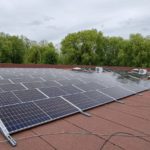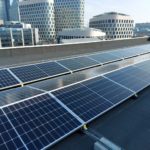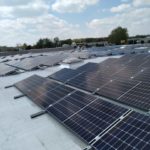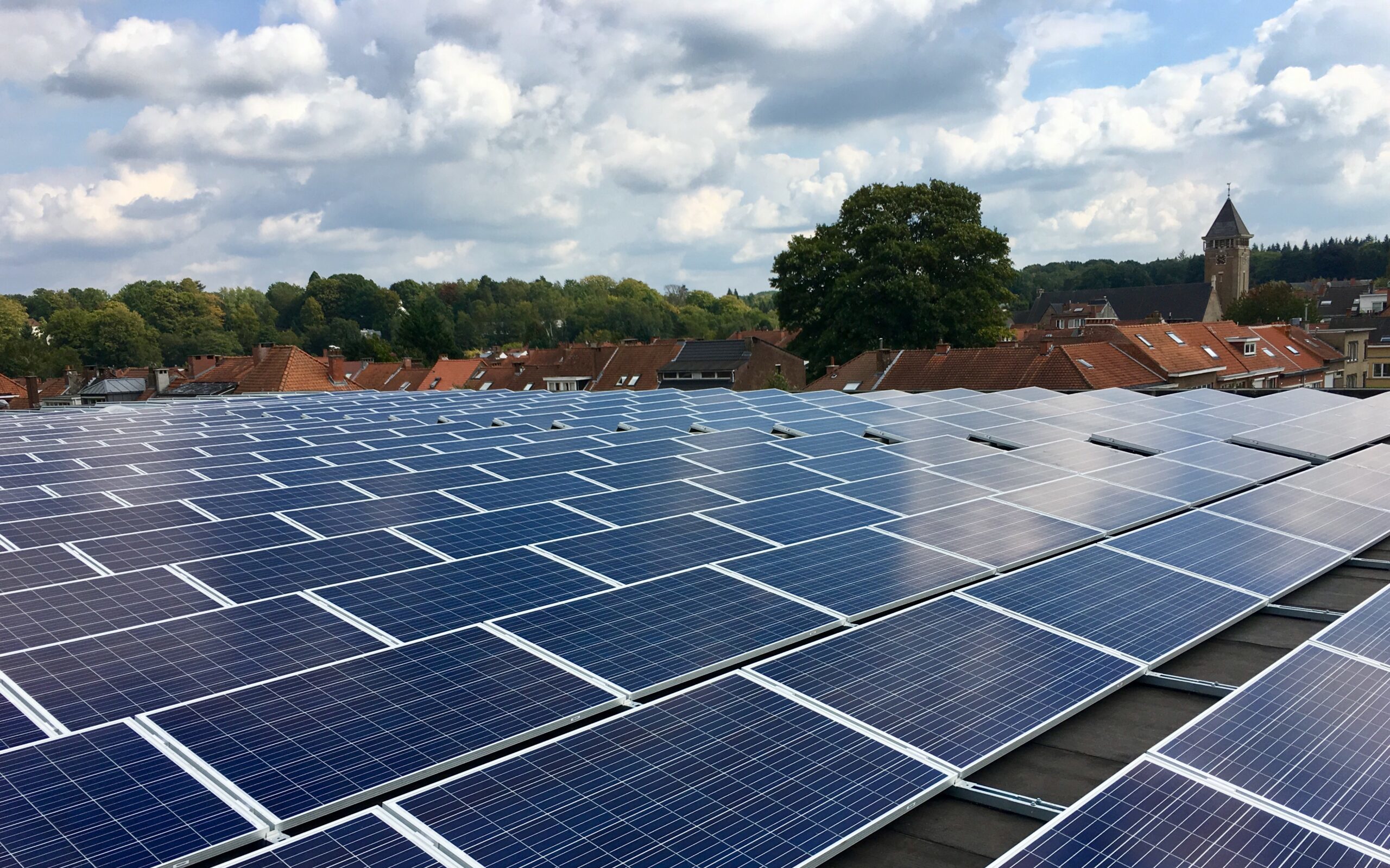
As a professional customer, Soltis can help you implement sustainable, cost-effective solutions with a single goal in mind: to improve your building's energy efficiency. Installing photovoltaic panels enables you to produce your own green energy and reduce your energy dependency. This reduces your exposure to energy price fluctuations.
The profitability of your installation depends on 3 sources of income:
- Savings on your electricity bill
- Resale of surplus electricity fed back into the grid
- Resale of green certificates
Soltis positions itself as a partner who will work with you to analyze your needs and requirements and develop turnkey solutions tailored to your organization.
*Green certificate sales mechanisms may differ from region to region. Contact us for more information.
Your benefits
- 01.rapid return on investment
- 04.save on your electricity bill
- 02.concrete participation in the energy transition
- 05.longevity and reliability of your system
- 03.improve your image
Monitoring
Keep control of your system at all times with your mobile monitoring application.
- Track your production in real time
- Get a global view of your production over the entire life of your plant
- A production problem? Check your inverter's status information and detect if a problem exists
Your inverter is more than just an electronic component, it's the brain of your installation. It pilots your photovoltaic panels in real time to produce maximum energy at all times. Thanks to your mobile app (delivered free of charge with your system), you can keep track of your system's production at all times.
Maintenance
Your installation is built to last. It is both necessary and useful to control a range of parameters to guarantee optimum production at all times. By opting for this solution, you optimize the income generated and guarantee the security of your assets.
During these visits, we carry out a visual inspection of your plant. Various control points are also checked to prevent and, if necessary, correct certain anomalies. You'll receive a full, detailed report detailing the points of our intervention, so you can enjoy the peace of mind of knowing that your installation is in perfect condition.

List of points inspected :
A. Visual inspection of the photovoltaic system and visible power lines for potential problems such as open connections, damaged cables, burnt areas or heat marks, loose cable connectors, etc.
B. Check the strength of the mounting structures and look for any damage.
C. Measure the voltage of each module string.
D. Check terminals in the decoupling cabinet for tightness.
E. Cleaning inverter ventilation filters.
F. Maintain inverters according to manufacturer's instructions.
G. Check fuses and surge protectors.
H. Check load-bearing surface.
I. Check modules for soiling.
J. Remove leaves and other garbage from the roof to avoid standing water.
10 reasons to choose Soltis
- + More than 15 years' experience
- Already 6,500 projects completed, as many satisfied customers
- A unique partner in energy efficiency (Photovoltaics, Insulation, LEDs, Electrical terminals)
- A Belgian SME on a human scale, with personal contact from A to Z
- Tailor-made identification of your needs by our experts, free of charge and without obligation
- Customized solutions for large companies, SMEs, the public and non-profit sectors, and farms
- 10-year warranty on the watertightness of your roof following panel installation
- Expertise in selecting the best technical solutions
- Complete management of administrative procedures
- A third-party investment system, without you having to use your own financialresources

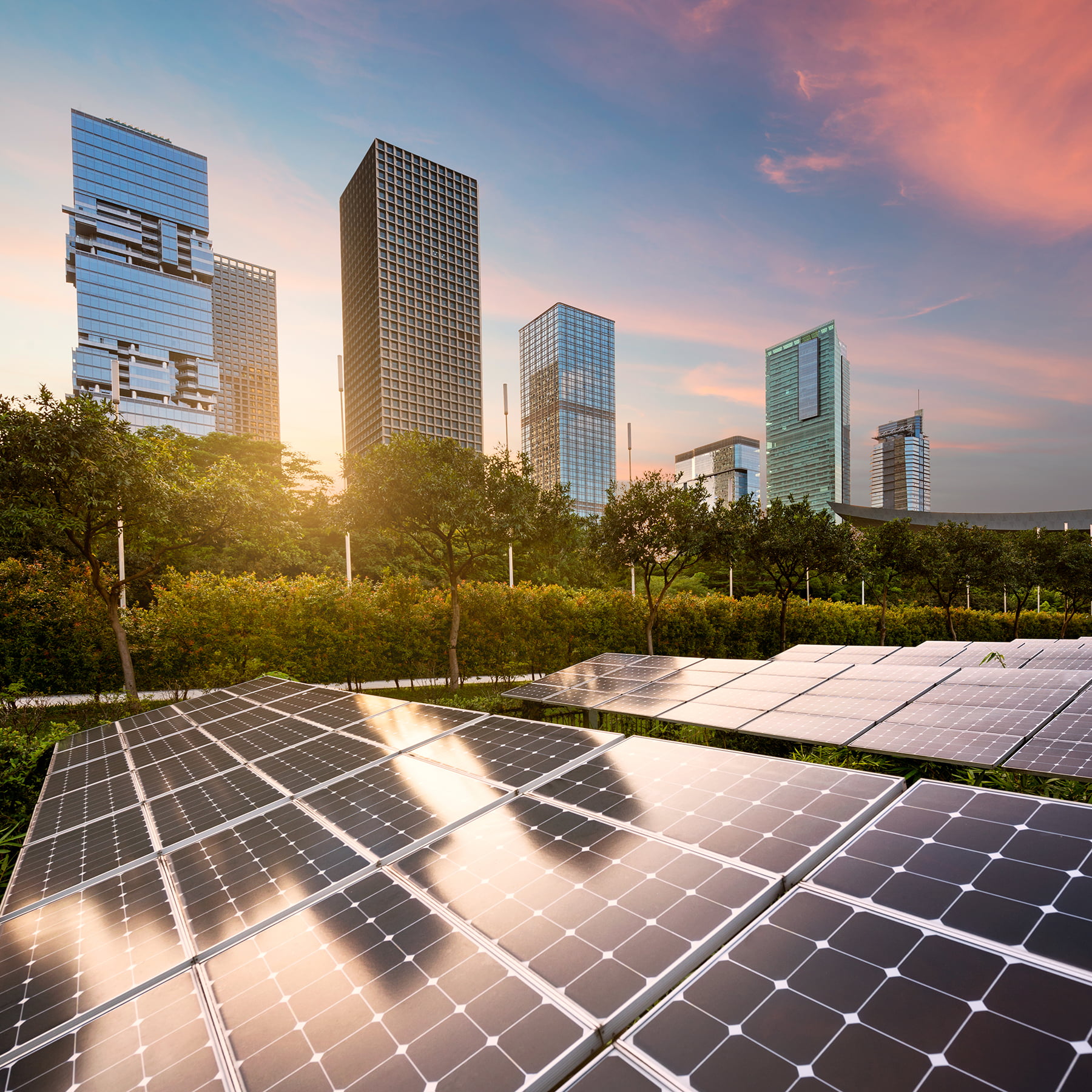

 In terms of energy investment,
thermal panels are beneficial, but their economic return can be less attractive.
Although financial incentives are available, maintenance of thermal panels is more complex due to pipes containing fluids that require periodic purging. In comparison, photovoltaic panels are simpler, with maintenance limited to the electrical cables.
Once installed, photovoltaic panels have a lifespan of around 25 years, with little maintenance required. Rain generally cleans the panels, and the main maintenance consists of replacing the inverter after 10 to 15 years. On less sloping flat roofs, cleaning may be necessary every 3 to 5 years.
In terms of energy investment,
thermal panels are beneficial, but their economic return can be less attractive.
Although financial incentives are available, maintenance of thermal panels is more complex due to pipes containing fluids that require periodic purging. In comparison, photovoltaic panels are simpler, with maintenance limited to the electrical cables.
Once installed, photovoltaic panels have a lifespan of around 25 years, with little maintenance required. Rain generally cleans the panels, and the main maintenance consists of replacing the inverter after 10 to 15 years. On less sloping flat roofs, cleaning may be necessary every 3 to 5 years.
